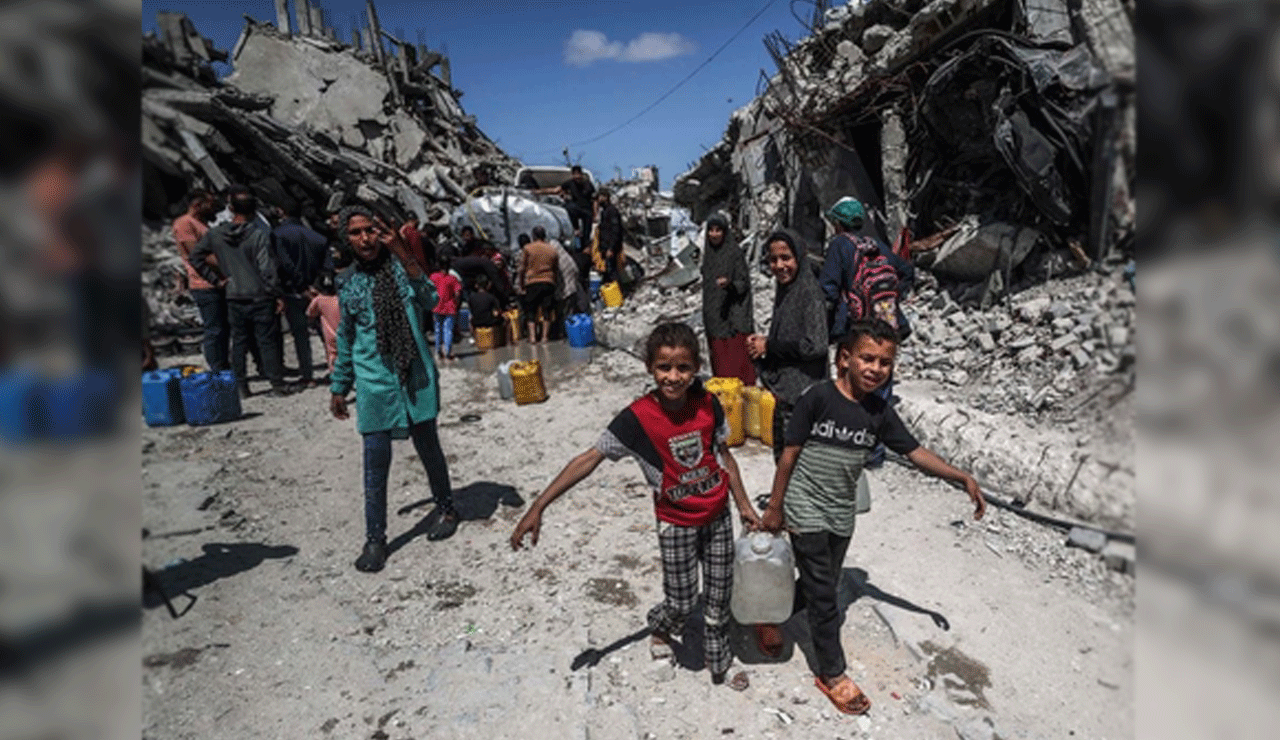Gaza Civilians Face Crisis as Hostilities and Aid Blockade Intensify: UN
Ongoing Israeli airstrikes and an escalating aid blockade are taking a devastating toll on civilians in Gaza, according to the United Nations.

GAZA CITY: Ongoing Israeli airstrikes and an escalating aid blockade are taking a devastating toll on civilians in Gaza, according to the United Nations. The UN Office for the Coordination of Humanitarian Affairs (OCHA) reported a sharp rise in casualties and worsening humanitarian conditions, particularly among children and displaced families.
On Wednesday alone, an Israeli strike on a residential building in Gaza City reportedly killed dozens, including at least eight children. Many individuals remain missing under the rubble, OCHA said.
Over 1,500 Killed Since Recent Surge in Violence
The Ministry of Health in Gaza confirmed that more than 1,500 people have been killed in less than a month, with a large number being women and children. The ongoing conflict has severely limited access to food, water, and medical assistance.
Table of Contents
Humanitarian Aid Blockade Worsens Conditions
According to OCHA, the aid blockade—now entering its sixth week—is critically impeding the delivery of life-saving humanitarian aid. Supplies are nearly depleted inside the Strip, and increasing reports of looting have emerged in areas like Rafah, Deir al Balah, and Al Zawaida.
Urgent Need to Reopen Crossings for Supplies
OCHA emphasized the need to reopen Gaza’s border crossings to allow essential supplies, including food, water, and fuel, to enter. The situation is especially dire for children, with over 60,000 currently suffering from malnutrition, and community kitchens rapidly running out of fuel and resources.
WHO Calls for Increased Medical Evacuations
The World Health Organization (WHO) confirmed that 18 patients and nearly 30 caregivers were evacuated from Gaza on Wednesday for specialized treatment abroad. However, approximately 12,500 patients still require urgent medical evacuation. WHO is calling for the opening of all available border crossings to facilitate these life-saving movements.
Also Read: Pakistan forcibly deports over 11,371 Afghan refugees; crackdown continues
Acute Water Shortage and Public Health Risks Escalate
Water scarcity is reaching critical levels in shelters across Gaza, where thousands of displaced people reside. OCHA and its partners report that poor hygiene conditions—exacerbated by the lack of cleaning supplies and the presence of livestock—are contributing to a public health emergency. In March alone, more than one-third of Gaza households were affected by lice infestations.
